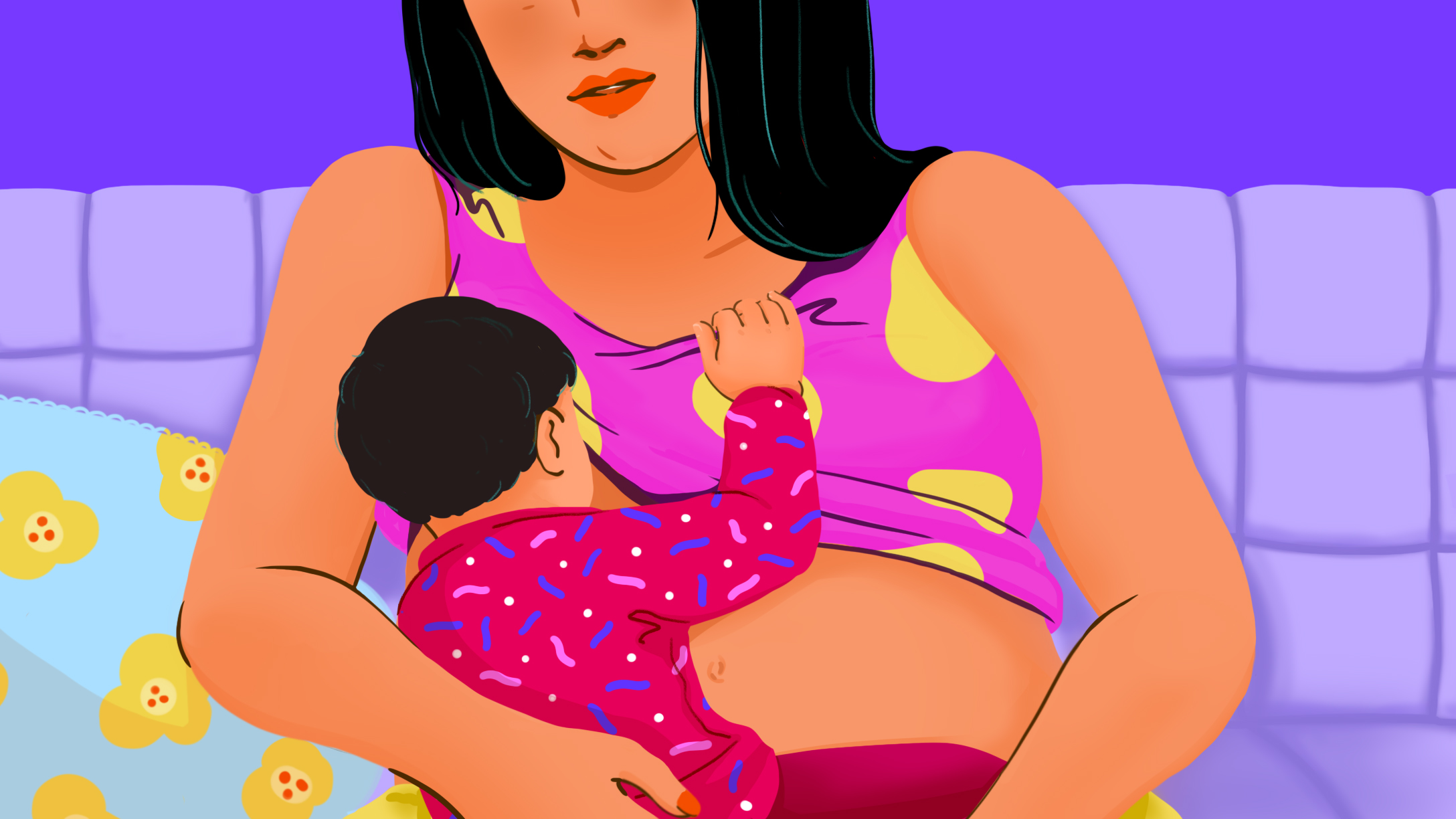
In this article
Moms get so many mixed messages, even from health care professionals, about whether it’s safe to breastfeed while pregnant.
Let’s help make it clear: Yes, it’s safe for most pregnant moms to nurse based on numerous studies and advice from organizations like the American Academy of Pediatrics, the American Academy of Family Physicians, and the La Leche League.
“There is no evidence that breastfeeding during low-risk pregnancy leads to increased chance of harm to mother or baby,” says the La Leche League. “Breastfeeding during pregnancy is a personal decision.”
In fact, if you wish to nurse while pregnant, the AAFP even suggests breastfeeding a child up to at least 2 years old, and the La Leche League says there are strong physical and emotional benefits to long-term nursing.
Pregnant women who may be advised to wean
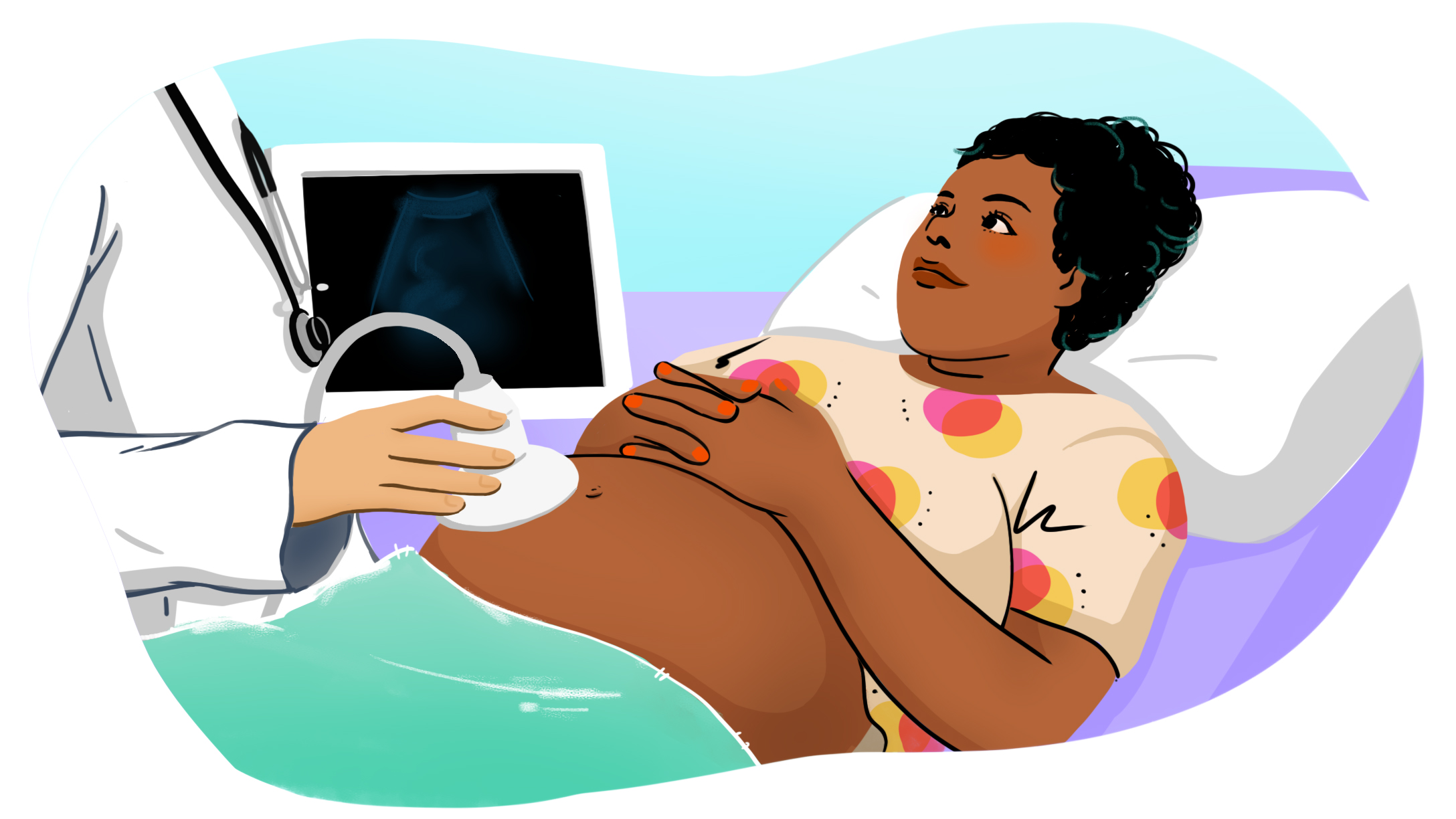
According to the American Pregnancy Association, pregnant women may be advised to wean and should consult their doctors, if they:
- Have high-risk pregnancies or are at risk for preterm labor
- Are carrying twins
- Have been advised to avoid sex while pregnant
- Have bleeding or uterine pain
Can breastfeeding cause miscarriage?
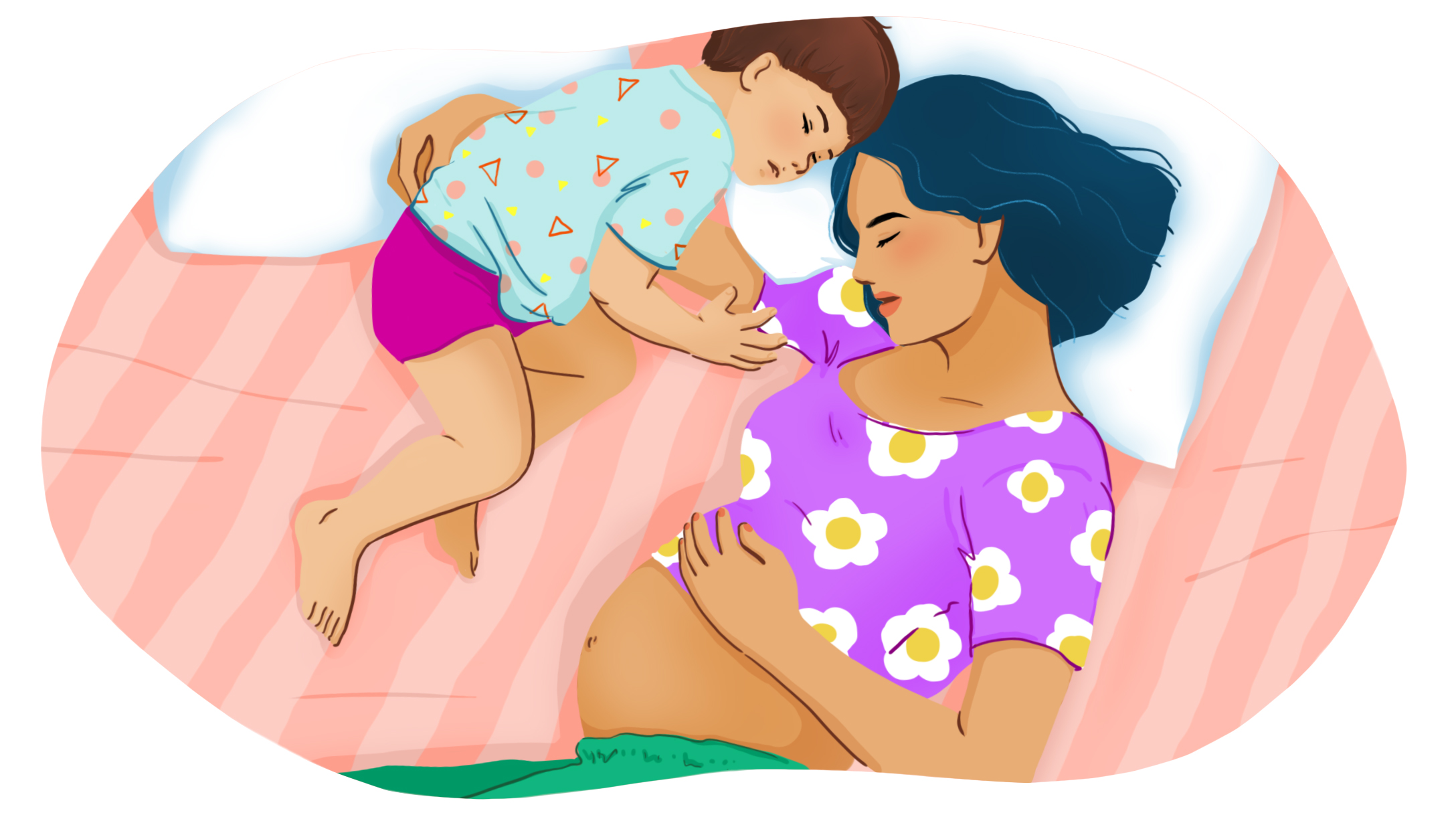
It’s a common belief that breastfeeding while pregnant can cause uterine contractions that then lead to preterm labor or miscarriages. But there’s no greater risk of miscarriage associated with breastfeeding in healthy pregnancies. (The La Leche League has a great list of research on the breastfeeding miscarriage myth.)
The fear comes from the hormone oxytocin, which is released when the nipple is stimulated (also during sex) and can trigger mild uterine contractions, but it’s usually not enough to cause preterm labor.
If you do have a history of premature delivery, have miscarried before, or are experiencing symptoms of preterm labor, the American Academy of Pediatrics suggests talking to your obstetrician and reporting any uterine contractions.
“Most often, there is no cause for great concern,” the AAP guide says. “But it’s important to be sensitive to your body’s signals.”
Challenges of breastfeeding while pregnant
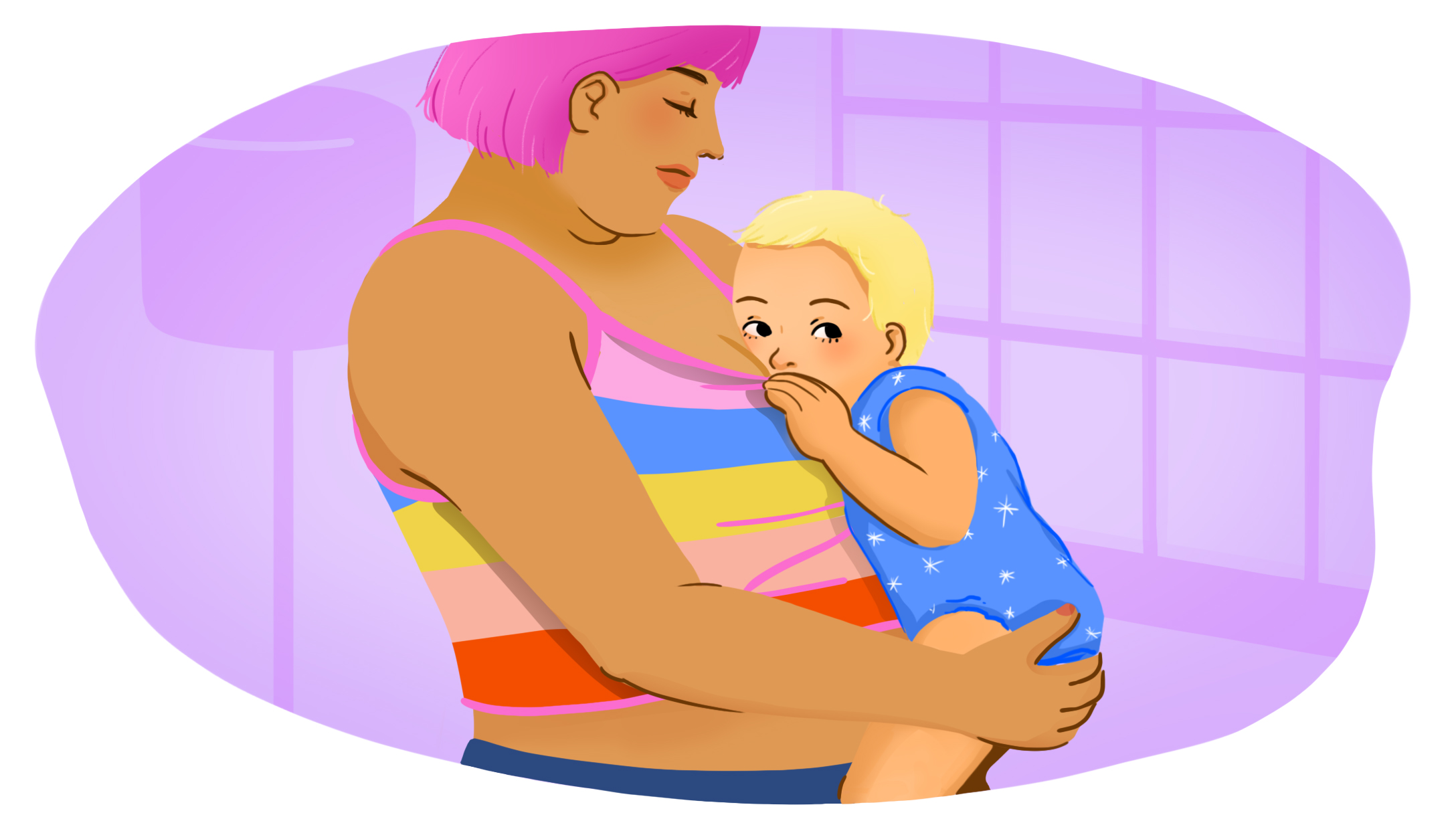
While it’s safe to breastfeed while pregnant, there are some issues pregnant women face while nursing that makes every mom’s experience different.
Some common challenges for nursing while pregnant include:
- Sore nipples, since they’re beyond sensitive during pregnancy
- Your nursing child may notice changes to your milk’s taste and consistency that comes with pregnancy, so some children may want to nurse less
- A slight drop in milk supply, usually around 16 to 22 weeks, that might require supplementation (milk typically returns toward the end of pregnancy)
Pregnancy changes to your body can be exhausting, so if you feel like you want to stop nursing at some point, don’t feel guilty about it! Wean when you feel it’s right.
How much to eat while breastfeeding and pregnant
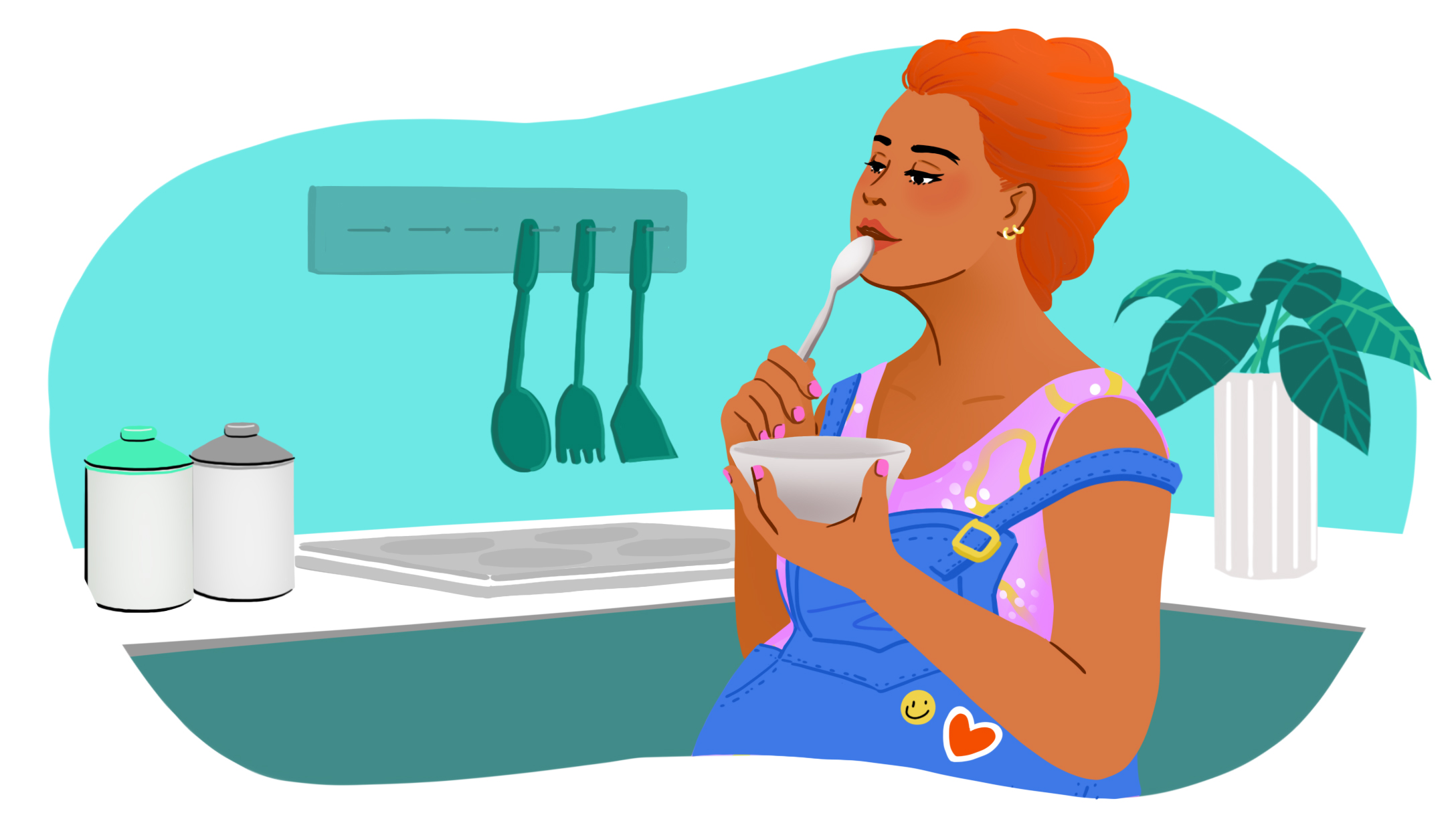
It’s important to eat well and stay hydrated if you’re breastfeeding while pregnant. Go for healthy, nutrient-dense foods, like fruits and vegetables, whole grains, and lean protein. (The Department of Agriculture’s Choose My Plate has food recommendations for pregnant and breastfeeding women.) Your doctor may also suggest supplementing with prenatal vitamins and mineral supplements, like vitamin D and folic acid.
In general, you should listen to your body, and eat to your hunger and thirst. If you really wanted to count calories, the American Pregnancy Association recommends eating around 500 extra calories per day if your child is eating other foods besides breast milk, and 650 extra calories if your baby is less than 6 months old. That’s not including the 350 extra calories moms may need during the second trimester and the 450 extra calories during the third trimester.
Tandem Breastfeeding
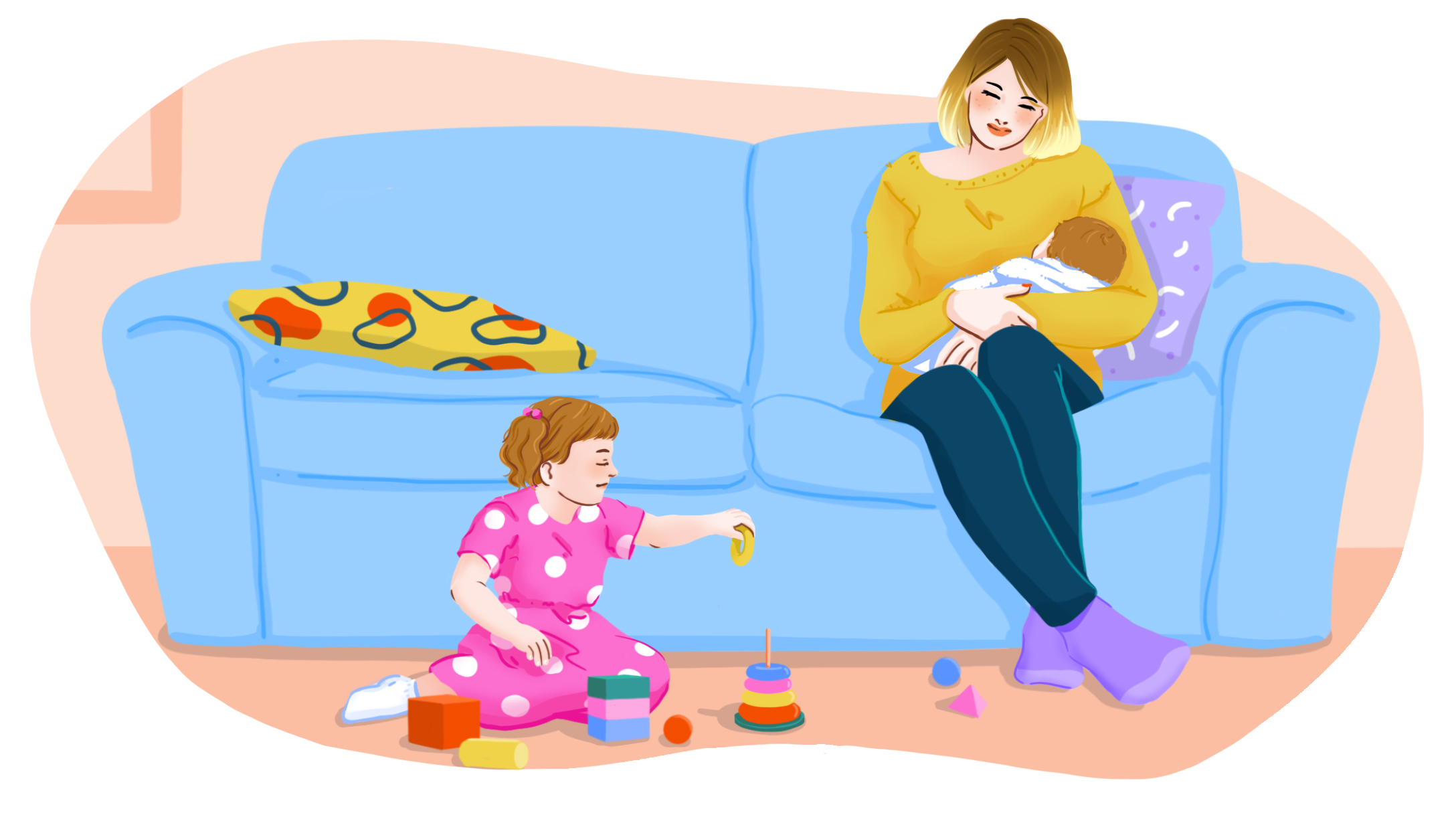
Some moms choose to tandem feed or breastfeed both their older child and new baby. Tandem breastfeeding can help save time, encourage bonding, and help ease your older child’s adjustment to all the changes.
Especially in the beginning, when your breast milk will briefly return to the colostrum stage, some doctors suggest giving newborns nursing priority. The colostrum may also cause diarrhea in the older child for a short time, according to the UT Southwestern Medical Center.
“Keep in mind that the new baby’s breastfeeding needs are the most important at this time. Your infant urgently needs the colostrum and immune-protective benefits more than your older child. To ensure that your infant receives adequate milk, breastfeed her before nursing your older child and allow her breastfeeding needs to take top priority. A 1-year-old or toddler can make up for a decrease in breast milk with nutritious solid foods,” notes the AAP.
Tandem nursing uses more energy than breastfeeding one child, as your body tries to produce enough milk for two kids. Be sure to eat and drink well, and listen to your appetite. If you feel overwhelmed or touched out, prioritize self-care and speak to other tandem nursing moms.




